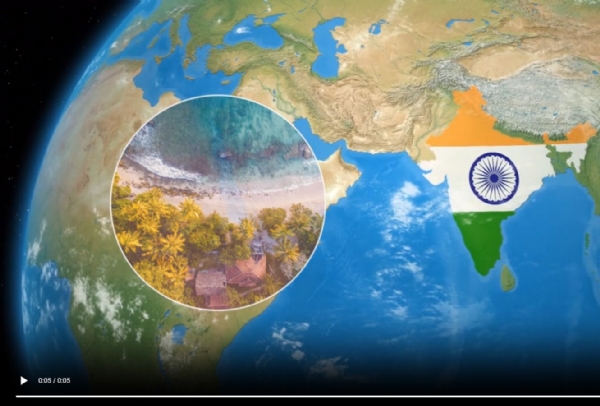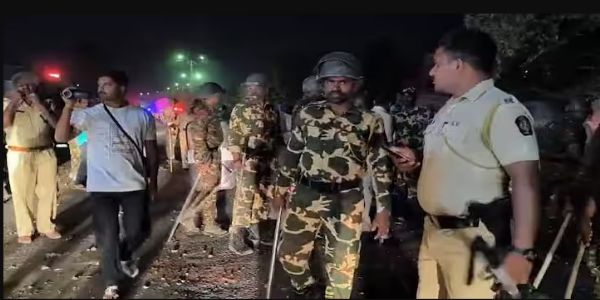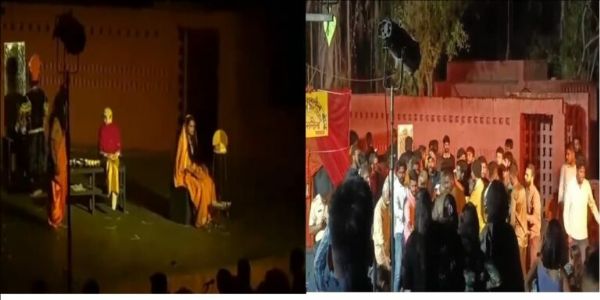NB Exclusive | Armenia-based software 'Renderforest' refers distorted map of India, major part of Jammu & Kashmir MISSING
Considering the severity of Renderforest"s act, the Union Ministry of Electronics and Information Technology (MeitY) can issue the notice under the Section 69A of the IT Act, 2000.
Total Views | 227
In a startling revelation, Renderforest , a leading video-making software based in Armenia, has come under intense scrutiny for displaying an inaccurate map of India within its application. The software allegedly excluded Pakistan-occupied Kashmir, prompting concerns over territorial integrity.

According to a tweet by Kalinga Forum,
"While working on Renderforest it was discovered that the software provides the distorted map of India that doesn't include the entire state of Jammu & Kashmir, where the Pakistan - Occupied Kashmir, that India honors as its own land is MISSING. Users, with such setup, are compelled to follow something that is absolute disrespect and disregard of India's territorial integrity. We demand a change here."
Jammu & Kashmir is a sensitive issue for India. A country like Armenia, that has had significantly good relations with India, should consider this issue to be a serious one. It should be noted that such acts, intentionally or unintentionally, undermine India's stance as an independent nation, in respect of its territorial integrity towards the state of Jammu and Kashmir and promote agendas that the Indian government terms as 'anti national'.
Another important fact that should be underlined here is that Armenia & Pakistan do not have diplomatic relations. Pakistan is the only country in the world that does not recognize Armenia as a state. The main reason for the diplomatic rift between the two countries is the Nagorno-Karabakh conflict.
At the same time, Armenia and India maintain active political ties and effective cooperation exists between the two nations within international bodies. After Armenia’s independence in 1991, Armenian-Indian relations were reestablished.
Filed Complaint against Armenian Video Editing Software Company @renderforestcom with @HMOIndia @GoI_MeitY for showing Distorted Map of India Violating "Prevention of Insults to National Honour Act of 1971" & Sect 2(1) & 2(2) of the Criminal Law Amendment Act, 1961 pic.twitter.com/AGmEGDjqXK
— Kalinga Rights Forum (@KalingaForum) December 1, 2023
Possible action against the act
Considering the severity of the act, the Union Ministry of Electronics and Information Technology (MeitY) can issue the notice under the Section 69A of the IT Act, 2000. Under this act, the government can block the website in the country.
Also read: "India is not a Hindu country": Liberals fume after NMC added colourised image of Ayurveda God Dhanvantri
The government, has introduced stringent rules for social media platforms to make them more accountable to end-users in one of the world’s largest internet markets. The 2021 rules require social media companies to take down contentious content quicker, appoint grievance redressal officers and assist in investigations.
The IT rules were further tightened in October 2022 to pave the way for formation of Centre-appointed panels to settle often-ignored user grievances against the way social media platforms addressed their complaints regarding content and other matters.
What is Section 69 of the IT Act?
Section 69 of the IT Act allows the government to issue content-blocking orders to online intermediaries such as Internet Service Providers (ISPs), telecom service providers, web hosting services, search engines, online marketplaces, etc. However, the Section requires the information or content being blocked to be deemed a threat to India’s national security, sovereignty, or public order.
Also read: 'Hindutvavaad / Manuvaad/ Brahmanvaad se Azadi' : Bengaluru Pride march raises ‘anti-Hindutva’ slogans
It should be noted that the Ministry of Electronics and Information Technology (MeitY) and the Survey of India (SoI) are cracking down on apps hosted on app stores such as Google Play Store that have been depicting India's map incorrectly.
Last 2021, the government had issued a notice to microblogging platform Twitter for showing Leh as part of Jammu and Kashmir instead of the Union Territory of Ladakh.
- The news has been EXCLUSIVELY covered by News Bharati staff (Himali Nalawade, Shivani Shinde)
--
Bharati Web







